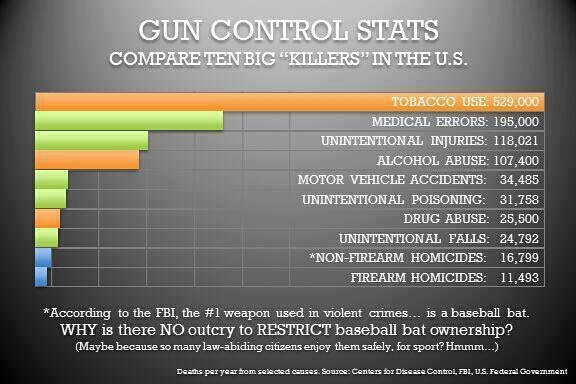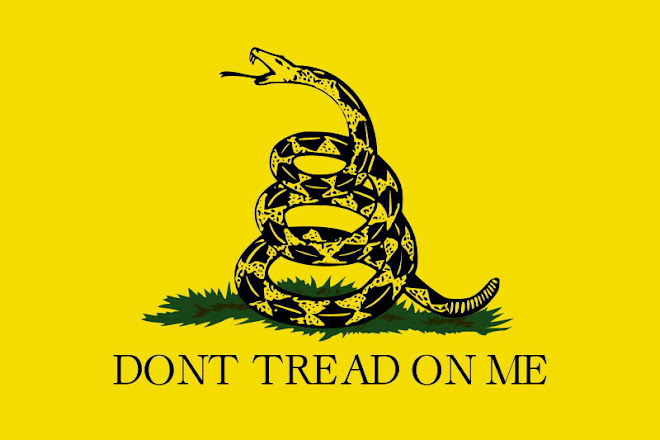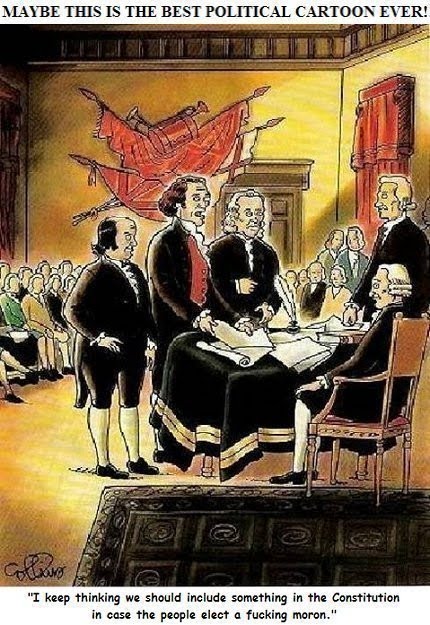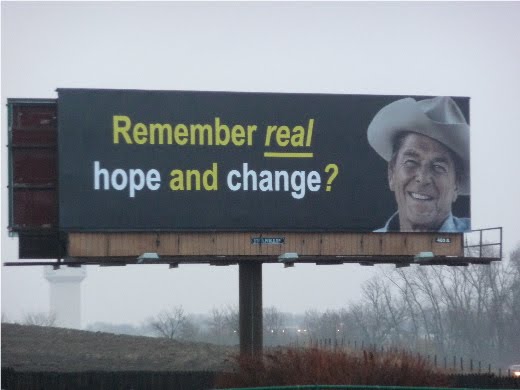‘Won’t Back Down’ stars undaunted in face of union protests of school-choice movie (View the movie trailer at the bottom of this post)
posted on September 27, 2012 by Mary Katharine Ham
This week actresses Maggie Gyllenhaal and Viola Davis learned that making a movie about going up against teachers’ unions to save a failing public school means going up against teachers’ unions in real life, too. Protesters gathered at the New York and L.A. premieres of “Won’t Back Down,” a film about a pair of determined moms— one a bartender and one a teacher— who take on apathetic teachers, bullying bureaucrats, and yes, entrenched teachers unions to turn around their children’s failing public school. “Won’t Back Down” opens everywhere Friday.
The film is based on “parent trigger” laws— one of which passed in California in 2010— that allow parents to band together to choose new governance for a failing public school. The film gives the “Norma Rae” treatment to a couple of strong, sympathetic women on the other side of a union battle, and the usual suspects aren’t happy about it. “Won’t Back Down” inspired a strongly worded letter from American Federation of Teachers head Randi Weingarten in August, accusing the film of “[u]sing the most blatant stereotypes and caricatures I have ever seen – even worse than those in Waiting for ‘Superman’ – the film affixes blame on the wrong culprit: America’s teachers unions.”
A screening at the Democratic National Convention in Charlotte, N.C. also drew protests.
The stars of the film, which also features Oscar-winner Holly Hunter, are undeterred by the controversy. Speaking on the “Today” show Monday, Davis said:
“I welcome protests. I welcome discourse; I think discourse is a good thing. I think it spearheads change…. And you know what, in this movie the teacher at the end of the day is the hero. They save the day. And it’s a system that’s broken, that needs to be fixed.”
Gyllenhaal, walking the red carpet in New York, said the message of the movie is about kids, not teachers unions:
“If the adults in this situation are disagreeing to such a point that we are not making the changes that we need to make in order to serve our kids, then we are all failing.”
Protesters claim the movie oversimplifies a complicated issue and offers one-dimensional representations of teachers and unions, but according to the L.A. Times, the film “features plenty of committed teachers, some pro-union, others critical of its policies, and a bureaucrat (Marianne Jean-Baptiste) willing to help the activists in their cause.”
“I am surprised,” said producer Mark Johnson of the early negative response to the movie. “Maybe I’ve been naive about this, but I think it’s a David and Goliath story: two women, two mothers from completely different backgrounds who get involved in trying to do something about the sorry state of this particular school.”
School reformer and former D.C. Superintendent Michelle Rhee wasn’t so surprised:
“For an average person, it’s not an anti-union movie at all,” she says…“It did not shock me. It shocked a lot of the people from the movie, the actresses and [director] Daniel Barnz,” she says. “I’ve been in this game for a while. I knew it would cause a lot of controversy.”
I suspect the problem for Weingarten and her fellow travelers is not that the film “affixes blame…on teachers unions,” but that it affixes any blame on them at all. It also may rankle a tad that the Walden Media-backed film uses a favorite phrase of Obama’s in the service of school choice when Gyllenhaal’s character tells a crowd of parents, “You have to be the change you want to see!” Of course the education problems in this country are complicated, especially in low-income schools. Of course there are phenomenal teachers in public schools. I went to those schools and was raised by one of those teachers. But the message from teachers unions, on “Waiting for Superman” and now “Won’t Back Down,” is that the problems are so complex and teachers so infallible that no one can possibly do them justice on film.
Nonsense. Parents like the ones in “Won’t Back Down” exist, and they deserve to have their story told. Perhaps glorifying stories of determined, involved parents in low-income schools will inspire more of them, which would help students and teachers alike. I’ve watched Virginia Walden Ford fight for 15 years for school choice in Washington, D.C., after a scholarship to a private school from a benevolent neighbor changed her son’s life. Walden Ford was one of a small, hand-picked wave of black students who integrated the Little Rock, Ark. schools on the heels of the Little Rock Nine in the early ’60s, and she likens the fight for equal opportunity in education today to the fight she began in her childhood.
Years after her son graduated, Walden Ford is still a full-time activist on behalf of the District’s poor and minority students, most recently standing up to a Democratic Congress and president determined to strip away the D.C. Opportunity Scholarship for 1,700 students. Those scholarships, almost all of which go to low-income, minority students, were taken away as a favor to well-heeled teachers unions who don’t appreciate any competition, regardless of how much it helps kids. And, it does help:
“This isn’t just noise or random variation. This is a true difference,” said Patrick Wolf, the University of Arkansas professor who oversaw the three-year study. “In my opinion, the D.C. Opportunity Scholarship program has met a tough standard for efficacy in serving low-income students.”
Hollywood needs its rich, powerful antagonists to play foil to its plucky, sympathetic heroes. Just ask corporations and oil men. If teachers unions don’t like being cast in the role, they shouldn’t play it so readily in real life.
skip to main |
skip to sidebar

And tell your friends too!!!

Obama was an Alinsky trainer at ACORN
WRD began in January 2010 at the height of the Obamacare debacle. Since then, WRD banded with a group of like-minded individuals to form the Gadsden Group, influencing thought by challenging bias at the Milwaukee Journal Sentinel, volunteering for Republican candidates, participating in numerous campaign events, networking with other groups of concerned citizens, and gaining a foothold in social media on Twitter. Our "Letter to to the Left" after Governor Walker's convincing win in the June 2012 recall election went viral, and we decided to officially expand this site to include the Gadsden Group name.
We hope this site will be a one-stop shop for great websites, articles, polls, conservative commentary, and more. 2010 was the year of the Republican comeback, and 2012 was off to a great start with the convincing win of Scott Walker, but we have much work to do after the Romney and Thompson defeats, and it's up to all of us to make it happen. Share with friends, convince your kids, do your part to get our great country back! Thanks for visiting our site! Wisconsin Republican Dad and everyone in the Gadsden Group



"I also am a total loser"

3 victories in 4 year, this is uncharted water. Take that you lefties!!!!

wish I had thought of this one!



Send your donation to the Trotsky/Alinsky Center for the Insane


Thanks NSA!



Yuck!






One of the worst things I've ever seen on social media, and that's saying something. Disgusting.

What's the penalty for treason again?






"I go skeetshooting all the time" LOL







Benghazi-Gate is the end of O's political career whether he wins re-election or not. Let's make it not.


"Thanks for ruining our 20th anniversary meanie!"



Dear Leader violates the Flag Code. He should be arrested for putting his image on the flag while being a sitting POTUS. People have died for our Flag. These $35 flags from obama.com are a National disgrace.


Try putting this one on your Dane County SUV!!!

Those guys are working overtime over there

What kind of a vile, despicable person drives this car? (A Hyundai in Detroit as well)


This Massachusetts billboard gets it right!

Thank you Clint Eastwood for the Empty Chair!!! Great stuff!

The day the people were forced to take back their country


Romney for 8, Ryan for 8, Walker for 8, Rubio for 8. Then we die old & happy.



The Wisconsin Boys welcome the next POTUS to WI, the state that saved a country!

What could possibly get between you and your doctor?

Your kids all thank you!





The 1770's flag has made a huge comeback, and for good reason...



"he even writes lefty"

Another great campaign slogan: "Transparency!"

Those marketing folks are working overtime over there...

Please stay in the right lane...

Don't let the Takers defeat the Makers: Defeat Obummer in 2012

I'm kinda diggin' the new slogan: transparency finally?

The Democracy will ceast to exist when you take away from those who are willing to work and give to those who would not.
--Thomas Jefferson

"available at fine clothiers and wherever English is Spoken"

"Republicans believe every day is the 4th of July, Democrats believe every day is April 15th."

Close your eyes...breathe deeply...imagine...

"Thomas, I really think we ought to include this???"

"or what lefties refer to as, those pesky little first 10 amendments that prevent us from stomping on the great unwashed"

Ronaldus Magnus, on a billboard in the Twin Cities
Media Trackers
MacIver Institute
Wisconsin Republican Dad's favorite links
- Breitbart
- American Thinker
- Americans For Prosperity
- Bernie Goldberg
- Bill O'Reilly
- Citizens for Responsible Government
- Dick Morris
- Drudge Report
- Fox News
- Freedom Works
- Grandsons of Liberty (WI)
- Heritage Foundation
- Hot Air
- Learn the Truth About Obama's Past
- Mark Belling
- Mark Levin
- Michelle Malkin
- Milwaukee Journal Sentinel
- National Review
- Paul Ryan
- Politico
- Real Clear Politics
- Red State
- Right Wisconsin
- Ron Johnson
- Scott Walker
- The Daily Caller
- Track liberal bias at the New York Times
- USA Today
- Vicki McKenna
- WISN Common Sense Central
- Where the lefties hang out
- Young America's Foundation
Follow us on Twitter @Gadsden_Group

And tell your friends too!!!
If you understand Alinsky, you understand Leftists

Obama was an Alinsky trainer at ACORN
Welcome to our blog!
WRD began in January 2010 at the height of the Obamacare debacle. Since then, WRD banded with a group of like-minded individuals to form the Gadsden Group, influencing thought by challenging bias at the Milwaukee Journal Sentinel, volunteering for Republican candidates, participating in numerous campaign events, networking with other groups of concerned citizens, and gaining a foothold in social media on Twitter. Our "Letter to to the Left" after Governor Walker's convincing win in the June 2012 recall election went viral, and we decided to officially expand this site to include the Gadsden Group name.
We hope this site will be a one-stop shop for great websites, articles, polls, conservative commentary, and more. 2010 was the year of the Republican comeback, and 2012 was off to a great start with the convincing win of Scott Walker, but we have much work to do after the Romney and Thompson defeats, and it's up to all of us to make it happen. Share with friends, convince your kids, do your part to get our great country back! Thanks for visiting our site! Wisconsin Republican Dad and everyone in the Gadsden Group
Total Pageviews
Blog Archive
About Us

- Wisconsin Republican Dad
- WRD: I'm just a dad and husband who's very worried about the direction this country is going, and decided it was time I got involved. I believe in fiscal restraint, personal responsibility, a much smaller goverment, fewer government programs, agencies, and entitlements, strong national defense, and justice for criminals. I want our borders strengthened, tort reform, a balanced budget, and deficit reduction. I believe in Constructionist judges, not liberals who legislate from the bench. I'm pro gun, I'm for expanding nuclear power and offshore drilling. By default, that makes me a conservative Republican. The liberals are killing this country, and worse, they know it. Their desire to be liked, to be seen as champions of the poor, while they continue to grow the welfare state, bothers me greatly. Because arrogance is the worst of human traits, their condescension (that means you Russ Feingold) towards middle America makes me want to scream. So I am... Gadsden Group: We are a group of like-minded individuals based in Waukesha and Milwaukee counties (WI). We're sick of liberals running our state into the ground, so we decided to make a stand. So far, so good...
Very, very true...

Liberal tears....

"I also am a total loser"
We won! Again!!!

3 victories in 4 year, this is uncharted water. Take that you lefties!!!!
This says it all perfectly

wish I had thought of this one!
Leftists...

Differences

Please, can you help us find a cure?

Send your donation to the Trotsky/Alinsky Center for the Insane
The official definition of liberal

Obama's Desktop

Thanks NSA!
Sounds about right...

Sounds about Right

Please, no more desecration of the White House from these Hippies

Yuck!
Perhaps the best t-shirt evah!

2A

Here's one man who can save our counrty

That liberal lion, John F. Kennedy

Welcome to Wisconsin

The sick freak polymath22 posted this fake image of murdered Martin Richard

One of the worst things I've ever seen on social media, and that's saying something. Disgusting.
TRAITORS! TREASON!!!

What's the penalty for treason again?

What we're up against, #5,678,890




Our Idiot in Chief using his Prompter

"I go skeetshooting all the time" LOL
"What Difference Does it Make?"



Ronald Reagan (deceased) summarizes the Newtown killings
"We must reject the idea that every time a law's broken, society is guilty rather than the lawbreaker." -
--Ronald Reagan
--Ronald Reagan
And it begins...God Help us

Watching Americans die in Benghazi, and not assisting, leads to:

What have we done...

Oct. 25th, 2012 cover, New York Post

Benghazi-Gate is the end of O's political career whether he wins re-election or not. Let's make it not.
Words spoken were never truer...and he said them!!!

If looks could kill...

"Thanks for ruining our 20th anniversary meanie!"
DEFICIT!

Obamanation

This flag desecrator must be stopped NOW!!!

Dear Leader violates the Flag Code. He should be arrested for putting his image on the flag while being a sitting POTUS. People have died for our Flag. These $35 flags from obama.com are a National disgrace.

Now that's funny!

Try putting this one on your Dane County SUV!!!
The New Obama Slogan

Those guys are working overtime over there
My buddy Al G. from near Detroit took this photo...

What kind of a vile, despicable person drives this car? (A Hyundai in Detroit as well)

Thank goodness we're all computer-savvy!

This Massachusetts billboard gets it right!
The best empty chair photo I've seen so far!

Thank you Clint Eastwood for the Empty Chair!!! Great stuff!
June 28, 2012

The day the people were forced to take back their country
I don't care who you are, that's funny!

The great Paul Ryan

Romney for 8, Ryan for 8, Walker for 8, Rubio for 8. Then we die old & happy.

This is perfect for Andrea Mitchell, since she already is a dog!

June 18, 2012

The Wisconsin Boys welcome the next POTUS to WI, the state that saved a country!
Obamacare

What could possibly get between you and your doctor?
Quote that pretty much says it all
"As an American, I am not so shocked that Obama was given the Nobel Peace Prize without any accomplishments to his name, but that America gave him the White House based on the same credentials." --Newt Gingrich
Congratulations to all the 54% ers!

Your kids all thank you!

Got it Leftists? Understand? I didn't think so...




The 1770's flag has made a huge comeback, and for good reason...
"Here's to hoping this isn't your kids' teacher"


Obama's New Bill of Rights

"he even writes lefty"
Obama Marketing team is hard at it!

Another great campaign slogan: "Transparency!"
New campaign slogan for the Obummer juggernaut

Those marketing folks are working overtime over there...
Let's drive a little more carefully this time, OK?

Please stay in the right lane...

Don't let the Takers defeat the Makers: Defeat Obummer in 2012

I'm kinda diggin' the new slogan: transparency finally?

Thomas Jefferson, not exactly a fan of the welfare (ie. liberal) state
The Democracy will ceast to exist when you take away from those who are willing to work and give to those who would not.
--Thomas Jefferson
Scott Walker's Phone # if needed
Governor Walker's office # is 608-266-1212. Please feel free to call him and thank him for everything he has done, if you have questions, anything at all. This is what transparency looks like!!!!
Dads Against Daughters Dating Democrats

"available at fine clothiers and wherever English is Spoken"
Ronald Reagan

"Republicans believe every day is the 4th of July, Democrats believe every day is April 15th."
www.thoseshirts.com

Close your eyes...breathe deeply...imagine...
A clause that didn't make the final draft

"Thomas, I really think we ought to include this???"
The Bill of Rights

"or what lefties refer to as, those pesky little first 10 amendments that prevent us from stomping on the great unwashed"
I wonder what he's thinking now???

Ronaldus Magnus, on a billboard in the Twin Cities